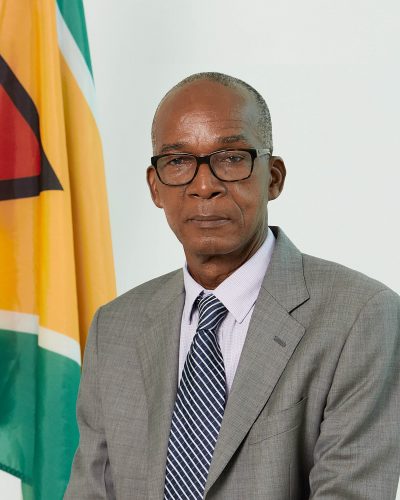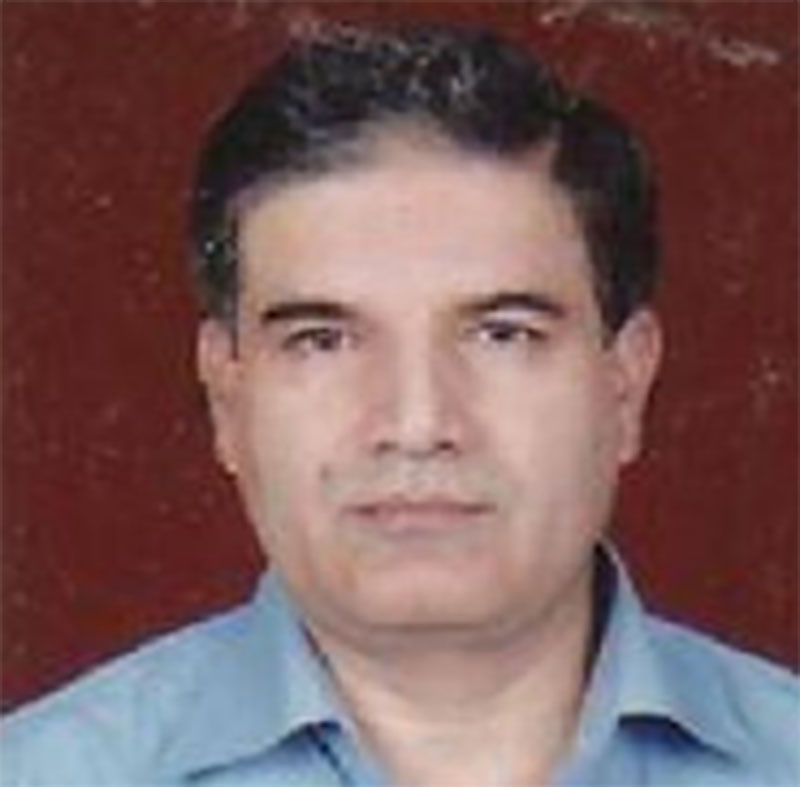Government has hired Indian policy advisor and labour economics researcher Dr Anil Yadav to conduct an assessment of Guyana’s short and long-term cross-sectoral labour capacity needs and design a strategy to guide government-planned immigration and labour policies, President Irfaan Ali says.
The announcement follows complaints made by local contractors, who told Ali of their difficulties finding workers, including daily and weekly labourers, with the skillsets needed to undertake infrastructural projects currently being executed. When Ali addressed the virtual Global Business Leadership Forum earlier this month, he highlighted the nature of the complaints from contractors about labour shortage-and government’s planned recruitment of an expert to conduct a labour analysis.

“I had a meeting on Friday with the contractors, and they’re all behind schedule now because they can’t find labour. They can’t find workers, and this is a major problem that we’re going to be faced with. Some may say it’s a good problem to have, but it’s a very troubling problem. So, we are working now on a holistic immigration policy, not only for the diaspora but understanding critically what the demand will be in three years, five years and ten years,” the Office of the President quoted him as saying.
Justifying the recruitment of Dr Yadav, the President told Stabroek News, “Professor Yadav… has done extensive work on manpower planning, matching economic output with manpower requirement… ”
He added, “We have to have a foundation for which we develop an immigration policy. Everybody is asking about an immigration policy. Every country develops an immigration policy based on some fundamental issues. [For example]: Where the labour shortage will be? Where the gap will be? How much would be that gap? And the projections…so that is what we need to establish first.”
Dr Yadav’s work is intended to be used as a training needs assessment for both this country’s private and public sector, and policy training efforts would be premised on the findings, Ali stated. “We need people badly and we need them now, and with the type of infrastructure that we’re investing in, the type of healthcare service we’re investing in, the type of education services that we’re investing in, guess what? Those services, when they’re fully built out in five years to 10 years, will require people to consume the service,” he added. Ali said that Dr Yadav’s will work with the Ministry of Labour as that ministry boosts its technical capacity.
Planning disadvantage
Minister of Labour Joseph Hamilton told this newspaper that Dr Yadav will be contracted to the Ministry of Labour for three years but explained that given the scope of his work, he will not be limited to that ministry. “He will pay attention to other ministries and agencies as he helps us develop a labour strategy. He will also help to develop the old labour force survey so that, as a developing nation, we can properly know the type of training we should do for new types of professions, both at the technical and vocational levels,” Hamilton explained.
The Labour Minister bemoaned Guyana’s lack of a database, not only for labour demand but even as a directory of professionals. This lack of critical information puts Guyana at a planning disadvantage, especially for the youths of the country and programmatic upgrades for respective professions. “In Guyana, we are not at a place that we know in a deliberate or exact way how many persons are in a specific profession. So if you don’t know, you won’t know what training to get, for example, in one or five years’ time,” he said. To capture all of the information needed, Hamilton reasoned, government needs to work to put functional systems in place. “That is attention to the labour force we have at the moment,” he emphasized. “When you have information, data and statistics you can work with, then you can forecast what you have to get in the next five and ten years and so on. That helps out with planning what training will be needed and for which areas…that kind of thing,” he said.
Hamilton identified the Board of Industrial Training as the preferred institution for persons to be trained in the technical areas, but the immediate data on job skill needs remain an obstacle. Given Dr Yadav’s extensive work in India in the same areas, Hamilton said, his help to this country would be needed as it will “help us structure those things.”
Hamilton underscored that Dr Yadav will be looking at Guyana’s secondary schools’ programmes to expose students to a wide array of professional options, and the feedback would guide government on what those immediate training needs will be. “We have to plan training for persons coming out of secondary schools,” he stressed.
In addition to guiding government’s labour development drive, Dr Yadav’s work is expected to be used as a reference for planning its immigration policy. “Some months ago the Vice President spoke to the issue of whether we would have to consider the issue of migrant labour at some time. Guyana is a small place. We may have many persons who have those skills needed but they might rather have small businesses. So because of the expansion of the country that difficulty in sourcing skilled labour is arising and I rather suspect we will start having that conversation [about migrant labour] …at some time,” Hamilton noted.
The Ministry of Labour, according to Hamilton, will be proactive and not wait to see if such a time will come as it is working on its own labour management document. “I have asked the Chief Labour Officer [CLO] to begin some research and work so we can start a ‘white paper’ of sorts…,” he said. To fill current gaps of experienced skilled trainers for technical areas, Hamilton said, “I have instructed the board of IST to seek out qualified retirees who are willing to work and see a transfer of skills. Retirement age here is 55 and we have strong people who are qualified and want to pass on that knowledge. I have instructed that we try finding those skilled people so that they can be retained and help in the reskilling of others,” he said. When Dr Yadav begins work before the end of this month, according to Hamilton, he would see that this country has already been building capacity.
Dr Yadav’s work as Chief of India’s National Institute of Labour Economics Research and Development (Formerly Institute of Applied Manpower Research) has been extensive. According to the institution, Dr Yadav did his Masters in Economics with Econometrics from M.S. University, Baroda and before being its lead, he worked with the Institute of Economic Growth, Delhi, Sardar Patel Institute of Economic and Social Research, Ahmedabad, Indian Institute of Management, Ahmedabad, National Council of Applied Economic Research, Delhi, and Apeejay Institute of Management, Delhi. His areas of interest are Macro Economics, Development Economics, Manpower Planning, and Education Development.






